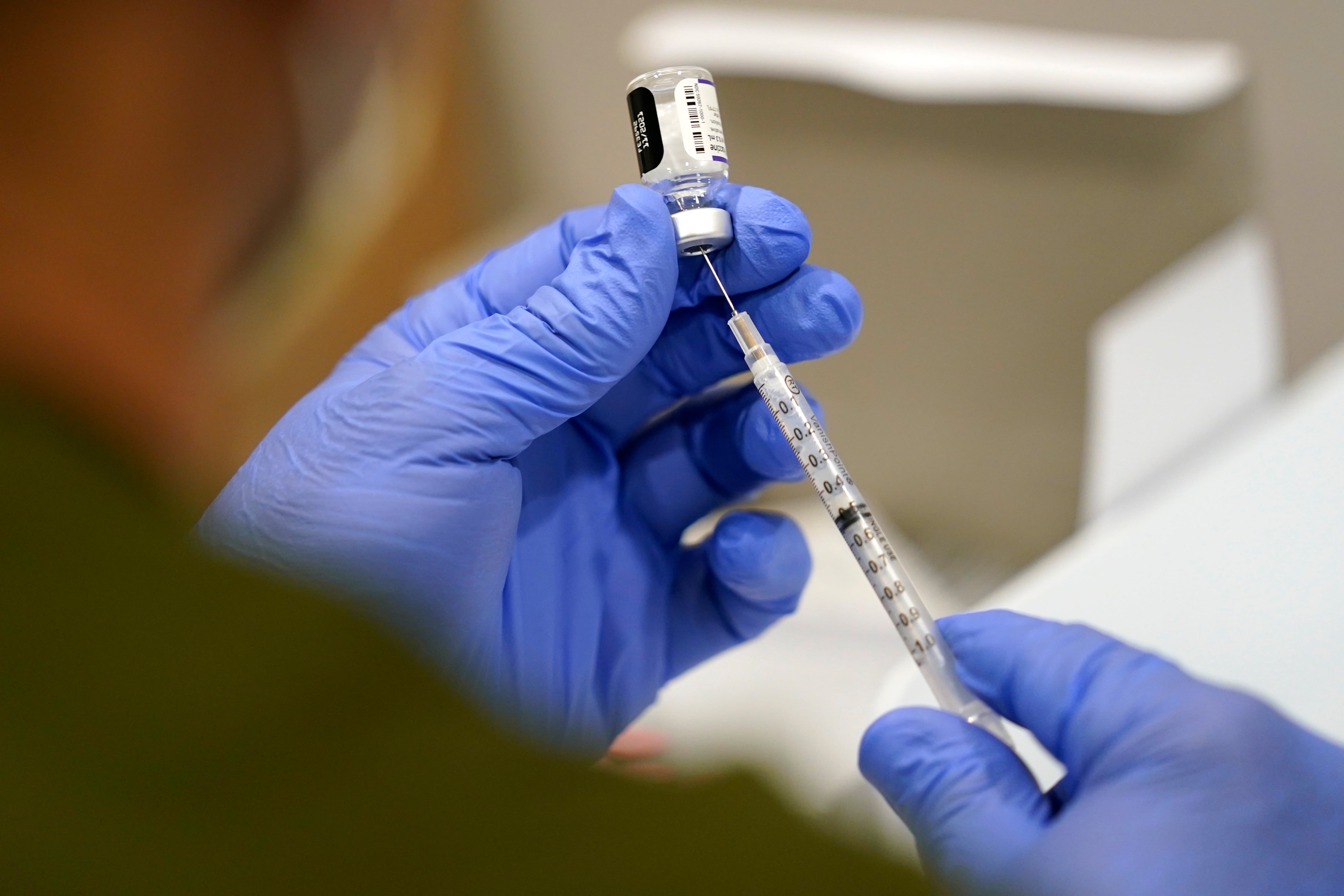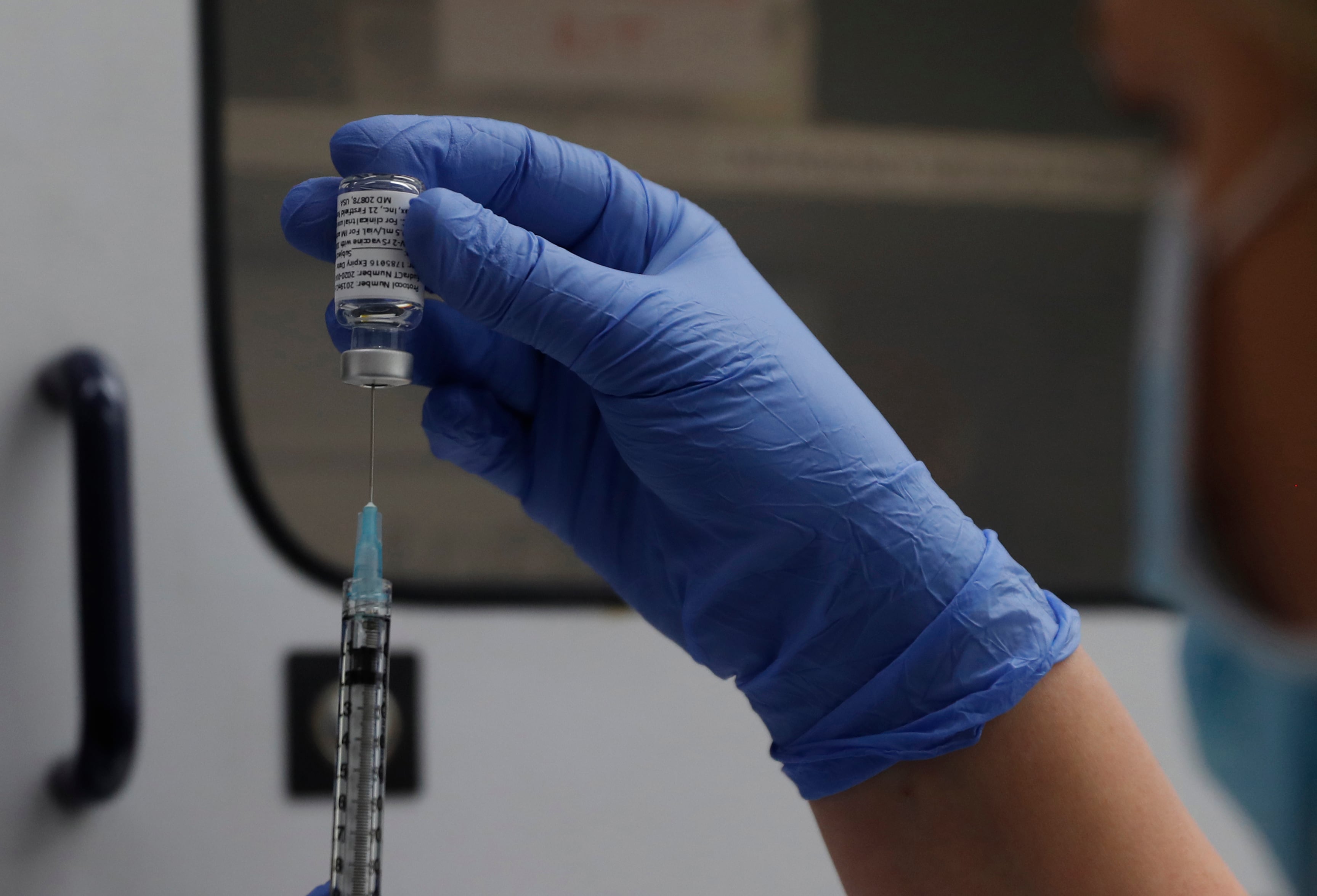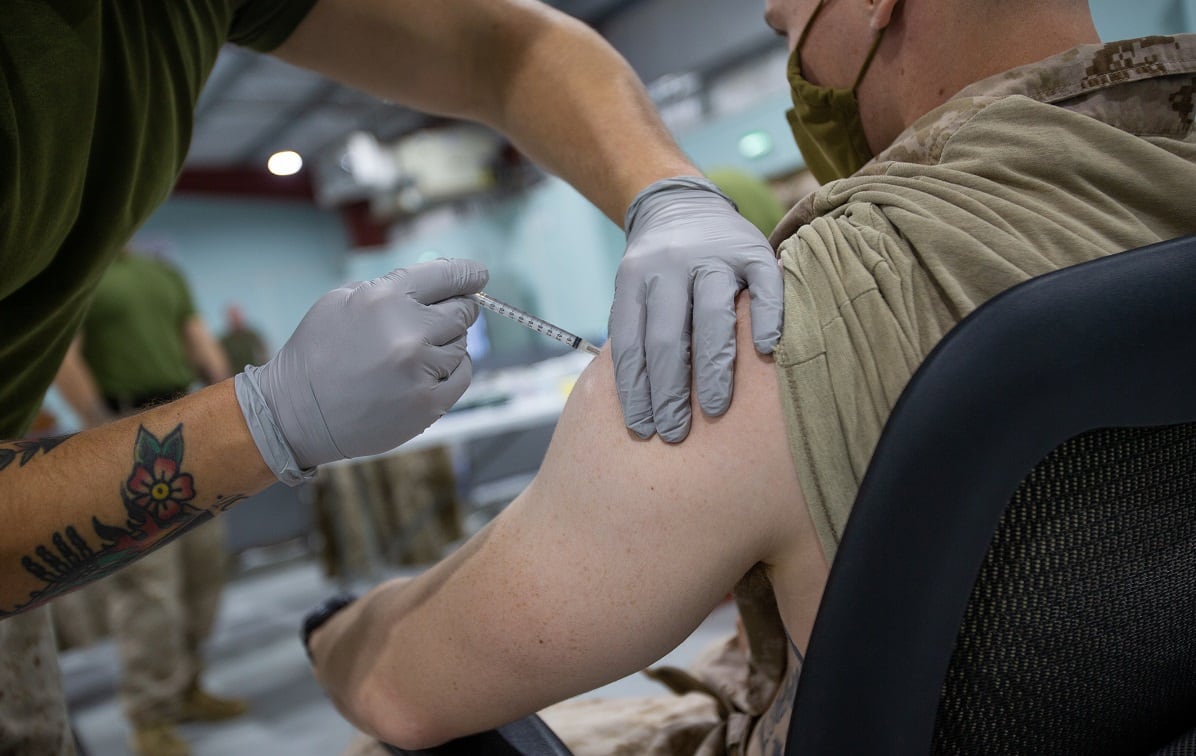A federal court in Ohio on Thursday blocked the Air Force from enforcing the military’s coronavirus vaccine mandate for two weeks, a short-term win for airmen fighting multiple legal battles against inoculation.
The temporary restraining order means the military cannot punish airmen and Space Force guardians whose application for a religious exemption to one of the federally endorsed vaccines was denied or is still being processed.
Judge Matthew McFarland’s decision brings the case, Doster v. Kendall, closer to trial as a class-action lawsuit. He has criticized the Air Force for what he sees as a failure to carefully consider the merits of each exemption request and instead sweepingly reject them.
“Members face the same injury: violation of their constitutional freedom by defendants’ clear policy of discrimination against religious accommodation requests,” wrote McFarland, of the U.S. District Court of the Southern District of Ohio.
Air Force spokesperson Ann Stefanek declined to comment on ongoing litigation and how it may affect how the service handles religious accommodation requests.
Lawyers are waiting to see if a federal court in Georgia will stop the vaccine mandate nationwide through another class-action preliminary injunction as well.
“The government has recently ordered imminent punitive action against those men and women of faith who cannot in good conscience take these experimental vaccines, and this order stops the government in its tracks,” Adam Hochschild, a lawyer with the Thomas More Society and lead counsel in Air Force Officer v. Austin, said in a release.
More than 1 million Americans have died from COVID-19 since the virus began spreading in December 2019, and the U.S. has recorded around 89 million cases. Sixty-seven percent of the U.S. population is fully vaccinated.
About 97% of the Department of the Air Force is fully vaccinated, though a larger share of active duty airmen and guardians have gotten the jab compared to their Guard and Reserve counterparts. That leaves around 14,400 airmen and guardians less protected in the COVID-19 pandemic’s third year.
The Air Force has approved 135 religious exemption requests out of thousands submitted so far. Nearly 1,500 more people are exempt for medical or administrative reasons, such as severe allergic reactions or upcoming retirement.
RELATED

The number of exemptions has fluctuated over the last several months as some people decided to get the shots or leave the service instead of seeking accommodation. As of Tuesday, the Air Force had denied about 6,800 initial religious waiver requests and 3,600 appeals, and has not ruled on nearly 3,500 more cases.
More than 800 unvaccinated service members have been ousted from the Air Force so far.
Complainants push back on the military’s position that remaining unvaccinated endangers the force and undermines national security, since the vast majority of troops have received all of a one- or two-shot regimen.
In the Ohio case, 2nd Lt. Hunter Doster of Wright-Patterson Air Force Base and more than a dozen other plaintiffs argue the Air Force is forcing them to lose their livelihoods or violate their religious beliefs by receiving vaccines they say are impure or have ties to abortion.
RELATED

Pfizer and Moderna’s mRNA products used cells replicated from a fetus aborted in the 1970s to make sure the vaccines worked in human cells. The fetal cells were not used to produce either vaccine, National Geographic reported last fall.
Johnson & Johnson uses cells replicated from a fetus aborted in 1985 to produce its vaccine, but those cells are filtered out from the final product.
Everyone who joins the military must receive a slate of several vaccines to enter, including chickenpox, rubella and hepatitis A. Each of those shots also involves cell tissue derived from fetuses, as does one version of the rabies vaccine. Rabies shots are required only for some service members in certain career fields.
Court documents show that two plaintiffs in Doster v. Kendall took the two-dose Covaxin vaccine, created in India, to comply with the Pentagon’s requirement.
The World Health Organization approved Covaxin for emergency use in late 2021, making it a viable option for airmen who object to the three main U.S. shots. Then in April, the WHO warned that supplier Bharat Biotech had stopped production because of “deficiencies in good manufacturing practices.”
RELATED

Still, the organization said Covaxin is still a safe and effective product.
Another plaintiff is fighting in court after trying to retire — one alternative to vaccination the Air Force offered.
Lt. Col. Edward Stapanon, a Catholic instructor pilot at the 435th Fighter Training Squadron in Texas, said he requested retirement twice but was turned down because he hasn’t finished out an extension of his active duty service commitment that ends in 2024.
“When I meet my maker, I’m going to be held responsible for the decisions I’ve made, and I’d much rather go to prison,” Stapanon testified in March. “There’s been a lot of great saints that have gone to prison, so I’m willing to do that.”
Rachel Cohen is the editor of Air Force Times. She joined the publication as its senior reporter in March 2021. Her work has appeared in the Washington Post, the Frederick News-Post (Md.), Air and Space Forces Magazine, Inside Defense, Inside Health Policy and elsewhere.





